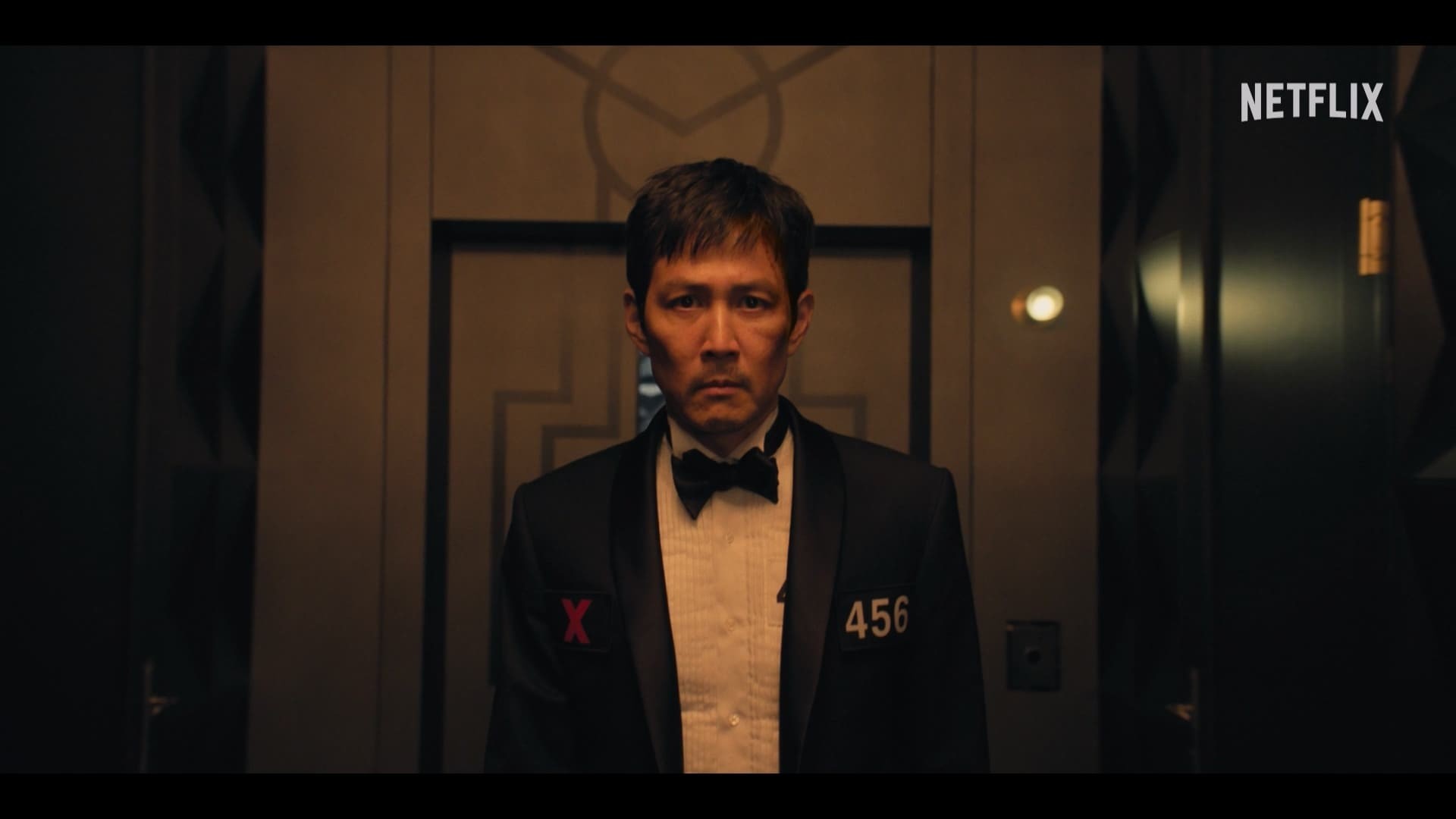
"We are not animals. We are human. Humans..."
"Who am I?" It's a question everyone asks themselves at least once. Seong Gi-hun (played by Lee Jung-jae) joins the game a second time, seemingly learning a lesson and asking that very question.
But perhaps the ultimate game in Squid Game is Gi-hun's journey to find out who he is. What was the answer he sought after stepping on the lives of so many others?
The journey of dissecting human nature through cruel games was refreshing at first. But once Gi-hun started searching for the essence of humanity, his actions fell into contradiction.
Though he claimed one could survive without hurting others, he was, after all, a survivor who stood atop over 900 dead bodies. So what did he mean by "humanity"?
(Note: This review contains spoilers.)

The heart of Squid Game is its protagonist, Seong Gi-hun. Across the seasons, it tells the story of his struggle to preserve his humanity. In Season 3, he returns to the game, determined to stop the system.
From the moment he actively interferes, shouting "freeze!", reactions were divided. As his plans fail, he turns into a powerless figure with conviction but no means.
Gi-hun's belief is to preserve humanity in a capitalist world. He refuses to be sacrificed for someone else's amusement. He stands up for human dignity until the end. It leaves room for hope.
But that idealism is riddled with contradictions. In the end, Gi-hun is still a survivor who lived at the cost of others. He saved no one. His ideals were lofty, but he had no real solutions.
The biggest issue is that viewers can no longer relate to him. Take the death of Dae-ho (played by Kang Ha-neul), for example. Gi-hun believes the rebellion failed because Dae-ho didn't bring the ammo clip.

In a death-match game, they meet again. Dae-ho pleads, "I was exempted from military service. The Marine thing was a lie. I was going to bring the ammo, but I got scared."
Still, Gi-hun strangles him to death, blaming him. But why is Dae-ho's trauma more understandable than Gi-hun's finger-pointing? This is the moment Gi-hun's ideals become hollow.
Later, the Front Man gives Gi-hun a knife and a choice: kill the unconscious participants and leave with the child. But Gi-hun refuses. Even though those participants also survived by killing others, he does not justify killing them.
Yet he strangled Dae-ho. Was that self-defense? In that moment, the value of life that Gi-hun claimed to protect is shattered. He had already chosen death for someone.

The final game is an aerial squid game. The remaining players target Gi-hun and the child. Just when he's cornered, Myeong-gi (played by Im Si-wan) reveals he is the child's father and sides with Gi-hun.
The odds are in Gi-hun's favor. But he rejects the easy way out. "This is not the answer," he says. He suggests a lottery to determine who gets eliminated, excluding the child.
Once again, he chooses "fairness." But is a fair killing still ethical? In a system where someone must die, is drawing lots really the moral path?
Gi-hun seems to uphold his ideals, but in doing so, causes yet another death. The fairness he believes in begins to look more like madness than morality. And in the end, Gi-hun is the last one standing.
Detective Jun-ho (Wi Ha-jun), who continues to search for his brother Hwang In-ho (Lee Byung-hun) from Season 2, ends up playing a disappointingly minor role. He wanders the seas trying to find the island, but his journey drags.

In the final moments, all he does is shout "Hyung!" It ends in vain, without him stopping the system. The same goes for Noh-eul (Park Gyu-young), a pink soldier.
There was a brief hope that she might disrupt the game. But her empathy is reserved only for Kyung-seok (Lee Jin-wook) and his daughter.
Ironically, the most impressive performance in Season 3 is from Im Si-wan. Myeong-gi lost everything through a crypto scam and caused many others to suffer. Still, he plays the line between good and evil with nuance.
He loses his girlfriend Joon-hee (Jo Yu-ri), and his child enters the game, bearing her mother's number (222). Storm after storm hits him.

Im Si-wan portrays each emotional turn – conflict, rage, decisions, and transformation – with distinct depth. Myeong-gi is nearly a villain. Even his fatherly affection isn't guaranteed.
But in the moment of choosing between his own life and his child's, he explodes with emotion. His rapidly shifting choices feel convincing and powerful.
If Gi-hun had passed the child to someone else, would Myeong-gi have done the same? Or would he have sacrificed himself? Or found another option? The tension keeps rising with these questions.
Director Hwang Dong-hyuk said at a press conference on June 9, "Can we leave a better world for the next generation? I hope that question stays with you."

As he hinted, the ending focuses on the next generation. The baby who survives receives the prize money and ends up in Jun-ho's home. Gi-hun's legacy is passed to his daughter in the U.S., and Kyung-seok's child survives.
Still, an overwhelming sense of futility remains. Maybe viewers, like Gi-hun himself, yearned for a clearer message. But director Hwang leaves that answer to us.
The child was saved, and a bet on hope was made. The definition of humanity was left open-ended. In the final scene, Cate Blanchett appears, hinting at the story's global expansion.
How will the message of Squid Game evolve next?



